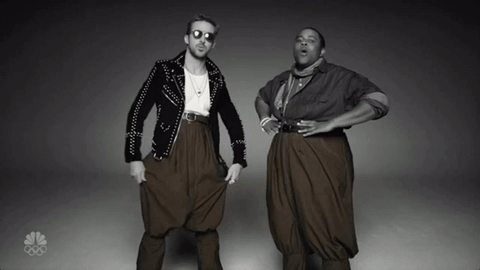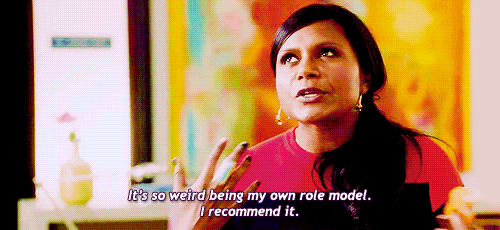The president of Colombia, the former chair of the FDIC, a top executive at Sesame Street and a MacArthur genius all have something in common. Successful careers and accomplishments, sure. But they also all earned degrees from the College of Liberal Arts & Sciences at KU. So, what’s in a liberal arts and sciences degree that helped them not only get jobs, but launch successful careers?
Here’s 9 key reasons why you should study the liberal arts & sciences:
1. You learn how to think:

With a liberal arts and sciences education, you learn to think critically, creatively, and analytically. Rather than taking everything presented to you at face value, you learn to delve into the whats, whys, and hows of the world. How will this project improve my company? Is there a better way? What are this politician’s true motives? Why should I vote for him or her? You learn how to challenge all preconceived notions about what is “best,” and you become a fully-functioning, interactive member of society, rather than another sheep in the flock.
2. You learn how to communicate:

In a liberal arts and sciences environment, you learn how to express ideas, both verbally and on paper. And if you learn a foreign language, that’s even more appealing. The ability to communicate effectively is a skill that becomes absolutely crucial both in the workforce and in everyday life. Besides, nobody wants to be “that guy” in the office who can’t even construct a proper sentence in his emails.
3. It’s flexible!

We no longer live in a world where an individual finishes school and then works for the same company until retirement 40 years later (okay, some folks still do this, but it’s becoming rarer and rarer). With a liberal arts education, you develop a broad-based foundation of knowledge on which you can build a variety of skills. Earning that history degree doesn’t mean you must become a professor or work in a museum. The critical thinking skills that you gain can be adapted to a wide range of careers.
4. It’s appealing to employers.

It ties into that ability to think and communicate. Employers value people who can develop and take charge of projects. This means not only constructing the project itself, but also anticipating any potential roadblocks or challenges and being able to communicate effectively with a team of people to carry out the necessary steps. Still not convinced? According to a survey conducted by the Association of American Colleges and Universities (AAC&U), 93% of employers believe that “a demonstrated capacity to think critically, communicate clearly, and solve complex problems is more important than [a candidate’s] undergraduate major.” (http://www.aacu.org/press/press-releases/employers-more-interested-critical-thinking-and-problem-solving-college-major)
5. It provides a solid foundation for grad school.

The development of critical thinking skills is a crucial component to graduate study, and an undergraduate degree in a liberal arts and sciences field can provide a head start where that’s concerned. What’s more, a liberal arts and sciences degree proves that you have the ability to learn across a diverse field of studies, which also provides a foundation of knowledge to go straight into graduate study in any subject you might choose.
6. You can follow your passion.

The College of Liberal Arts & Sciences offers more than 50 different majors in a wide range of fields, including sciences like biology and physics, social sciences like economics and psychology, humanities like English and history, and various foreign languages and area studies. With such a broad selection to choose from, you would be hard-pressed not to find a major that captures your interest. Can’t choose just one? Don’t worry — the flexibility of the KU Core has made it easier than ever to pursue multiple areas of study.
7. You become a citizen of the world.

Globalization is making it less and less possible to get by just knowing the customs and traditions of your local community. If you work in business or technology, your career will almost inevitably involve interacting with other cultures and maybe even other countries. Even if you opt to spend the rest of your life in a small town, chances are good that you will find yourself interacting with someone from a different background. The liberal arts and sciences exposes you to a variety of cultures and ways of thinking and they help you to keep an open mind when you encounter something new or unexpected.
8. You get to know yourself better:

You will find yourself asking questions of yourself and exploring a broad spectrum of ideas well outside of your comfort zone. You will learn to think abstractly and to consider a wide range of perspectives on many issues. You will be able to place things into a broader context, and you may even be challenged to consider your own role within that context. Embrace it! You just might discover something about yourself that you had never realized before.give
9. Our alumni say so, and they excel:
Who knows better than our #CLASof2017 why studying in the College of liberal arts & sciences is the best? Check out these Jayhawks reflecting on the small classes, the huge variety of subjects available, and the flexibility to pursue more than passion.
In the words of one recent alum, “studying in the College gives you the opportunity to do anything you want to do.” Don’t believe us? Check out our Hawks to Watch, a group of alumni who are killing it in their careers at Disney, Pitchfork, the Nelson Atkins Museum of Art, the Library of Congress, and more. Our Hawks show that people who study the liberal arts and sciences have heart. They are compassionate, curious, and creative. They think about the world’s problems from new angles, and propose solutions that make the planet a better place to live. They have a broad base of knowledge and skills employers are looking for, including critical thinking, analytical reasoning, problem solving, team work, strong communication and ethical judgment —and they are killing it in careers spanning business, technology, and the arts.

